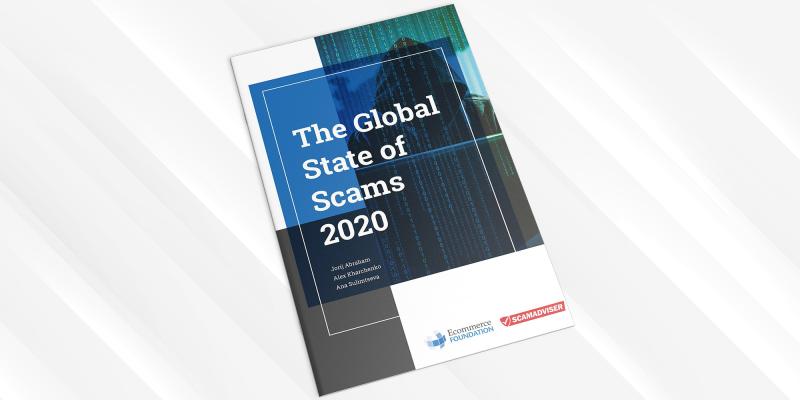
Online scams, like cybercrime in general, are very difficult to combat. Not only are most scams not reported, the scammers themselves are rarely based in the same country as the victim. In addition, the current way that hosting companies, SSL certifiers, ecommerce platforms, email houses, registries and registrars offer their infrastructure allows scammers to set-up shop very easily, cheaply and, most importantly, anonymously.

The Global State of Scams 2020 report contains data from 31 countries about how each one fights online scams. Nearly all countries researched report a growth in the number of online scams and money lost. Only Sweden (-6%) and Italy (-9%) reported a decrease in the number of scams in 2019. Due to the Coronavirus epidemic, an increase of 40% for 2020 can be expected as more and more consumers move to online shopping.

Several countries report that online fraud is becoming the most reported crime. Singapore reported that scams made up 27% of overall crime in 2019, up from 19% in 2018. Likewise, fraud is the most experienced crime in the United Kingdom and the biggest source of consumer angst in the United States. Russia reports that cybercrime’s share as part of all crimes may grow from 14% in 2019 to 30% in 2023.

Based on the analysis of the 30+ countries, 140 million scams were reported. Extended to the global population, 3% of the global population was scammed in one way or another. According to previous research by Scamadviser, anybody can be scammed. Surprisingly, higher educated and high-income consumers get scammed more as they spend more online and take more risks. The total amount of money lost was € 36 billion in 2019 or € 225 per reported scam.

Online fraud is less visible as only 7% of all cases are reported. Especially in developing countries, scam reporting has not yet been centralized and no specialized law enforcement team has been set-up to combat online fraud. Likewise, in countries where police forces are historically set-up decentralized like Germany, Spain, and Switzerland a central approach to scam prevention, reporting and fighting is still developing.
Even in countries where online scams are receiving government attention like Australia, Canada, the Netherlands, Singapore and the United Kingdom, scam reporting is still spread across multiple organizations such as banks, credit card companies, consumer protection agencies, police forces, public-private partnerships and review sites.

As scammers nearly always operate internationally and spread their scams across multiple countries, the chance of getting identified, investigated and, in the end, caught is very low.